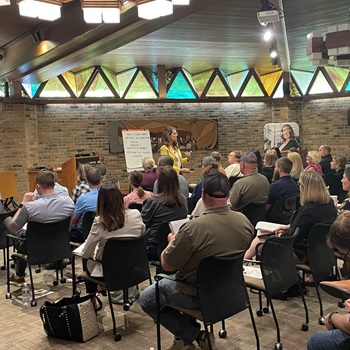In yesterday’s blog I shared about a time in life where it seemed catastrophe was everywhere. Find more practices of how I led through it and got back to center below!
Gain perspective.
Going through such a challenging time allowed me to have a better perspective for the rest of the challenges I’ve come across. In reality, health catastrophes are the only problems that are fully out of our control. Unlike illness, business or financial problems can be solved or at least mitigated through action and resources.
A few years ago, I was the victim of a phishing scandal and had over six figures of income stolen from me. This could have been debilitating for our small business, but as an entrepreneur, I knew that I would earn my way out of it and find a solution. Because I had experienced so much worse during the sickness and death of my family, I was able to quickly go into action mode. I also experienced incredible support from my peer group, which I recommend all business leaders find.
Simplify.
When catastrophe hits, all of your energy is consumed by that event and trying to mitigate it. You don’t have extra energy to spend on difficult people or additional tasks and activities that leave you feeling drained. Simplify your life by removing the people, things, activities, and negative messages around you. Recognize that you can’t do it all and that cutting back will leave you with more energy to spend on healing yourself.
Learn to ask for help.
The most important and difficult thing you can do during a catastrophe is to ask for help. Coincidentally, it’s when we feel most helpless that we want to ask for help the least and need the most help! Leaning on others and getting support (emotionally, financially, or with chores/errands) will help create space for you to work on healing yourself and overcoming the catastrophe. As leaders we are used to helping others but not great at asking for and accepting help. Over the years I’ve realized that denying help from someone else robs them of the good feeling they would get by supporting me. Next time someone asks, “How can I help?” be honest and tell them what you need.
